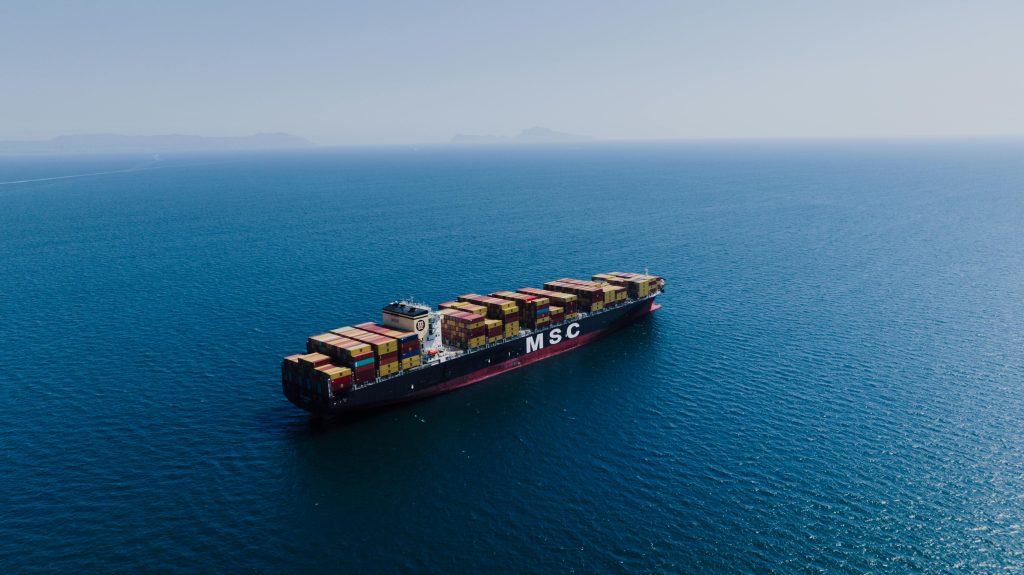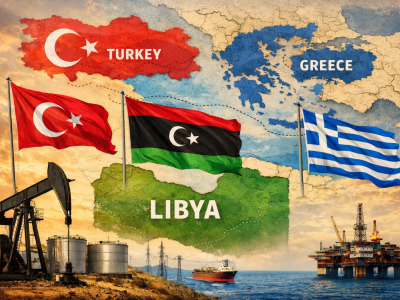Libya-Greece Maritime Agreement: Balancing Mediterranean Power Dynamics
The emerging Libyan–Greek understanding on maritime boundary delimitation comes at a highly sensitive regional moment, where the issues of gas and energy intersect with the struggle for influence among Eastern Mediterranean powers. This was clearly reflected in the visit of the Libyan Acting Foreign Minister to Athens on Wednesday and his meeting with his Greek counterpart, after which the head of the Libyan Committee on Land and Maritime Borders at the Ministry of Foreign Affairs announced an upcoming visit of a Greek technical delegation to Tripoli to launch serious negotiations between the two sides.
This preliminary understanding, in its foundations, cannot be read in isolation from the 2019 agreement between Libya and Turkey, nor from the existing alliances between Greece, Egypt, and Cyprus. Accordingly, this step may have direct implications on Libya’s relations with Turkey, as well as on its position within the network of regional balances.
In terms of significance, this understanding strengthens Libya’s international standing and demonstrates the country is capable of engaging in balanced maritime arrangements rather than being confined to a single axis. It also balances the 2019 maritime agreement with Turkey, which granted Ankara broad influence, thereby reshaping Libya’s image as a player with multiple options. At the same time, it carries a political message both domestically and internationally, it seeks to affirm the independence of national decision-making, while signalling Libya’s readiness to engage with all of its neighbors.
With regard to Libyan–Turkish relations, this understanding could bring both potential advantages and drawbacks. On the positive side, it may push Ankara to deal with Tripoli more flexibly out of fear of losing its privileges, while also creating a new negotiating environment that Libya can leverage to secure greater economic and security support.
However, the picture may shift if the understanding is portrayed as being directed against Turkey, in which case Ankara would interpret it as a hostile move, this could lead to a decline in existing military and security cooperation or prompt Turkish pressure on certain Libyan factions opposed to such a step.
As for Egypt’s role, it remains a key player in the Eastern Mediterranean and has had a maritime boundary agreement with Greece since 2020, Cairo will likely view the Libyan–Greek rapprochement positively, as it aligns with its strategy of curbing Turkish expansion, at the same time, Egypt could capitalize on this understanding as a bridge to expand its influence in Libya by pushing for trilateral arrangements involving Libya, Egypt, and Greece in the fields of energy and maritime boundaries.
However, Cairo may adopt a more cautious stance if it perceives that the understanding is being used merely as a tactical maneuver between Ankara and Athens without a clear strategic direction.
In terms of possible scenarios, the positive scenario lies in constructive balance, where Libya employs the understanding with Greece as leverage to reinforce its partnership with Turkey while simultaneously deepening cooperation with Egypt.
The result would be Libya emerging as a regional mediator and balancer, thereby enhancing its status as a pivotal Mediterranean state.
The negative scenario, by contrast, would involve Libya leaning excessively toward one side either Greece or Egypt against Turkey, or vice versa placing the country within a narrow regional axis, exacerbating internal divisions, and exposing it to proxy conflicts.
The fluctuating scenario would see Libya signing contradictory arrangements without a coherent national strategy, resulting in a loss of credibility with all sides and reducing Libya to a secondary player with little influence.
In conclusion, the Libyan-Greek understanding is not a negative step in itself but rather an opportunity to reshape Libya’s role in the Eastern Mediterranean.
Its success or failure will depend on Libya’s ability to manage the file with a high degree of pragmatism, enabling it to benefit from regional contradictions instead of becoming their victim.
The optimal path lies in pursuing a diplomacy of balance building partnerships with Greece and Egypt without relinquishing the alliance with Turkey. Only in this way can Libya transform itself from a mere arena for others into a player capable of setting its own terms and defining the trajectory of its national interests.
The views expressed in this article are those of the author, and do not necessarily represent the editorial position of this publication.




